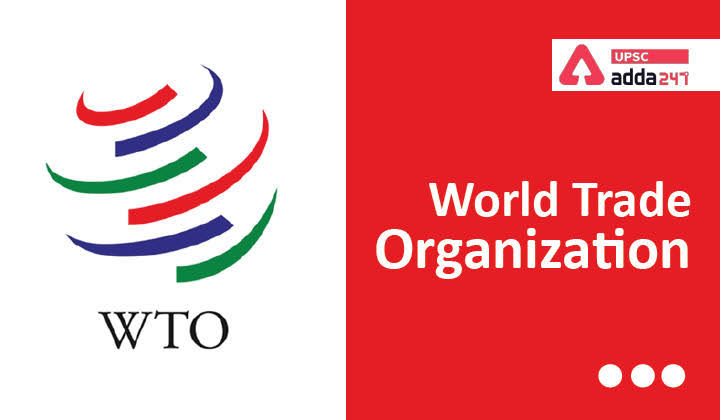•Says Globalization has Damaged Nigerian Economy, and increased debt profile.
Benjamin Atu a Political Analyst and Social Crusader has accused the World Trade Organization of hypocrisy, and being economical with the truth saying agents of Globalisation and International Organizations like the World Bank, IMF, the World Trade Organization, and the Multinational Corporations are putting pressures through covert and overt means on the government of Nigeria to accept policies that best serve the neo-liberal agenda while deepening dependency.
“In the same way that Nigeria was forced to amalgamate, we are now being forced into the global economy unprepared. We will seek a break from the global economy in the future, just as we are currently seeking national restructuring”.
According to Atu, deregulation that was encouraged by WTO has created more problems than it was established to solve as Nigeria’s wealth has been sold to Multinational Corporations, and taken over by private individuals and companies. Globalisation, by its design, is meant to benefit the industrialized nations, hence, the formation of the World Trade Organization (WTO) to continuously pursue the policy of trade liberalization, especially the removal of restrictions on trade. This has had an adverse effect on Nigeria’s industrial sector.
“Many manufacturing companies have closed down as a result of the influx of foreign goods into the country. Tariffs and other important restrictions are designed to protect domestic industries. However, globalisation has made Nigeria a dumping ground for foreign goods and services, resulting in a gradual decline and underdevelopment of the industrial sector. The result is loss of jobs and grinding poverty. Even the palliative called Poverty Alleviation Program is in itself a component of globalisation and has not lived up to its name.
Benjamin Atu, a former Media Aide to Governor Godwin Obaseki, was responding to a WTO report titled “Trade and Inclusiveness: How to Make Trade Work for All.” In a recent report, the WTO stated, “while trade has played a crucial role in promoting global economic convergence and reducing poverty, some individuals, regions, and economies have been left behind.” However, Benjamin Atu, a social critic and political analyst, accused them of spreading false information, describing Dr. Ngozi Okonjo-Iweala’s reaffirmation of trade’s transformative role in reducing poverty and creating shared prosperity as inconsistent with current realities. Nigeria’s economy is not matured enough for global integration because globalisation has brought more curses than blessings.
The veteran broadcaster insisted that as Nigeria’s economies open up to free trade and international competition, the country becomes poorer and more dependent. He compared the current relationship between Western nations and Nigeria to that of a seed and a tree. A seed must die before it can produce a tree.
Nigeria had to be underdeveloped in order to provide development to more developed countries. Africa’s nations have consistently provided the Western world with cheap labour and raw commodities such as cocoa, palm, crude oil, groundnut, and so on.
Third World economies concentrate on commodities and minerals that the First World needs. Concentration on the development of a single commodity has resulted in Nigeria and other African countries occupying the ‘bottom billion’ and failing to benefit from trade liberalisation, making Nigeria a dumping ground for foreign products and services.
“The escape from poverty that was promised by trade liberalism is a cruel illusion as the escape route has suddenly turned to a prison of his own against Nigeria and African nations”
He lamented the undue influence of the Western nations on Nigeria due to their foreign aid and loans to Africa which serve more the interest of the donors and the creditors.
“The politics of foreign aid by international organizations is used not only to unduly influence the African economy but also control its policies for the benefits of the more advanced nations of the world – the centre-peripheries. An instance was when the IMF issued a query to Nigeria in respect of the N400 billion meant for capital expenditure in the 2001 budget.
He said the World financial institution contributed to drafting the 2001 budget by determining the Nigerian economy direction which serves their interest. Interference in the internal affairs of sovereign nation is a hallmark of globalisation which is perpetrated by its agents. By comparison, he said the amount of aid granted to the Third World is insignificant when compare to what the Third World pays back to them.
In 1989 for example, the West gave the Third World 30 billion dollars in aid, but the Third World gave the West 93 billion in debt repayments. This is why African burdens of debt exceed the continent’s Gross National Product.
Benjamin Atu, the National Coordinator of the Nigerian Association for Public Opinion Research (NAFPOR), maintained that trade and financial liberalisation make it easier for investors to move money or capital across national borders.
As a result, Nigeria is pushed to implement policies such as currency devaluation in order to compete in the global market. The implications of the above-mentioned policies are obvious and therefore have effects on the Nigerian economy.
This is how Western nations supervised the sale of government-owned commercial and merchant banks as well as cement plants. They also saw the government reducing its major stakes in hostels, auto assembly plants,
Nigerian Telecommunication Ltd (Nitel), Nigeria Airways, petroleum refineries, and so on. The effect is that, with the withdrawal of subsidies on essential services, individuals have to pay more for these services. Education and health services have become more expensive as a result of deregulation, and more children are dropping out of school, while university education has become more expensive, similar to the ongoing fuel hike, without adequate preparation for these economic shocks, he warned.
Benjamin Atu
M.Sc Comparative Politics and Development Studies
senatorbenatu@gmail.com
Chief Press Secretary Etsako East LGA.

